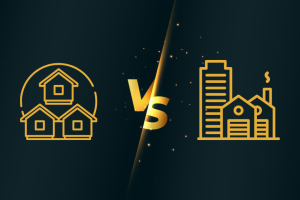CPA aspirants usually have to complete a coursework of 150 credit hours which include a major number of credits in accounting and business classes to eligible for taking the CPA exam. There are many accountancy degree programs of finance, accounting, and business at bachelor’s and master’s level by which aspiring CPAs can benefit from.
The bachelor’s program includes additional coursework and usually combined programs that direct towards the CPA exam preparation. These programs award the student with the bachelor’s and master’s degrees in the accountancy. Many education departments at various schools offer short certificate programs that include courses which are designed to get the students ready for the state’s CPA program.
Options In Accounting Degree
The good thing is there is not a single degree which is considered best for becoming a CPA. This means the applicant has all the options. Majority of the CPAs earned their degree either a bachelor’s of accounting or BBA or master’s in accountancy or MBA with the specialization in the accounting before pursuing. There are two reasons that business and accountancy are popular degree options. One is that becoming a licensed CPA, the first step is to clear the rigorous CPA exam. These two degrees are best to prepare and pass the tough CPA examination.
Secondly, a Bachelor’s Degree of 120 credit hours is not enough to prepare someone to take the CPA exam. Also, many states require CPA applicants to complete a degree with a minimum of 150 credit hours. Hence, people mostly either pursue the bachelor’s degree in accountancy at the university which offers the option of more difficult 150 credit hours or receive the extra credits by pursuing the MBA degree.
Taking accounting as a major in the bachelor’s program provides basics in the introductory through the advanced accounting-related topics. In master’s level more advanced level accounting is covered to prepare the students for the more complex CPA exam. Few concepts that must be studied when taking the CPA class are:
- Contracts
- Fair Value Methods
- Applied Improvisation
- Derivatives
- Business valuation
- Security markets
- Behavioral finance
There are many CPA review courses available but to form an accounting basis here are few courses that must be taken in the required credit hours for a better understanding of accounting and business-related fields.
Financial Reporting Course
Accounting and reporting of the income and expenditures of the organization. In this course, transactions analysis and preparation of financial statements according to the general standard accounting principles are reviewed. In short, students learn to comprehend properly financially accounting information.
Income Taxation Course
A common task that CPA has to perform is tax preparation, so usually, students study federal income tax law. Topics like income, capital gains, losses, deductions, and tax preparation methods for businesses and individuals are covered in this particular course.
Cost Accounting and Managerial Course
Financial accountants prepare the information to use outside the company whereas managerial accounting is done for the managers’ benefit within a company. Students learn cost analysis and how to compile budget information which helps in the managerial decision-making. In responsibility accounting process, students learn to trace profits and expenditures to the individual managers. The managerial accounting is used by the CPA for the utilization of production capacity and to estimate the cost to profit ratio.
Financial Auditing
Accountants are often asked to audit the financial records of the organization to validate the accuracy. The standards for internal and independent auditing procedures are explained in this course. Many ethical job issues and legal liabilities of a CPA accomplishing the audit are also discussed here. These concepts are explained to students by using real-world examples.
Business Law
In many U.S. states, one of the course requirement that is needed to sit in the CPA exam includes the business law. In this course, the student knows about the legal rules which are applied in the business operation such as sales, contracts, and torts. This helps students to know about the business structure like how businesses are formed, organize, financed, and dissolved. Law of assignment and third-party beneficiary contracts are major accounting issues explained in the course.
Taking The CPA Exam
Irrespective of the degree option chosen, at the end the CPA exam is waiting. This exam is created because on a daily basis the CPAs as part of the job, access sensitive data. Because of this, the CPA exam tests the candidates’ accounting procedure knowledge and mathematical ability. It emphasizes on the four main crucial areas:
Audit and Attestation: The purpose of this section is to make sure that the candidate has knowledge of performing audits, document an auditing process clearly, and consider evidence thoughtfully.
Financial Accounting and Reporting: This section ensures the candidates’ knowledge about non-profit and governmental accounting and financial statements aptitude as well.
Regulations: The primary focus of this section is on business law because it is related to the CPAs and also tests their sense of ethics.
Business Environment and Concepts: this is the final section which covers topics such as cover oversight and the ability of the CPA to work with the information systems.
These four sections show that the CPA exam is split between the accounting and business perfectly even, so choosing either degree is helpful. Eventually, the degree choice depends of course on personal interest, how much time one has to finish the degree, and as well as future career paths.


